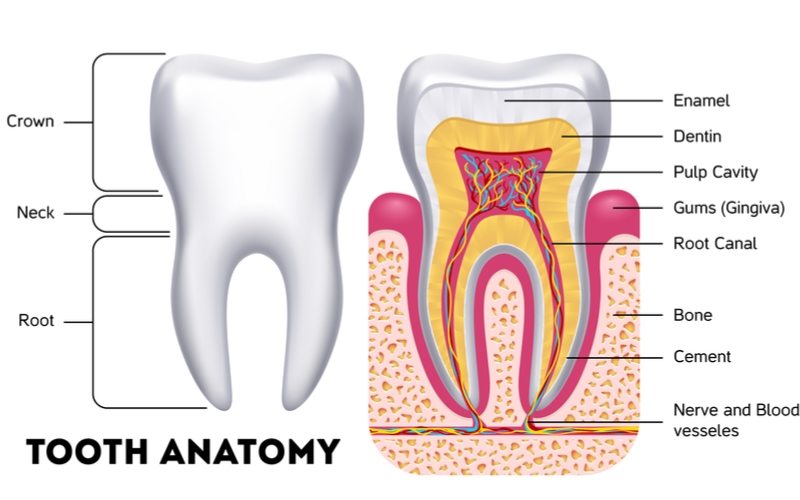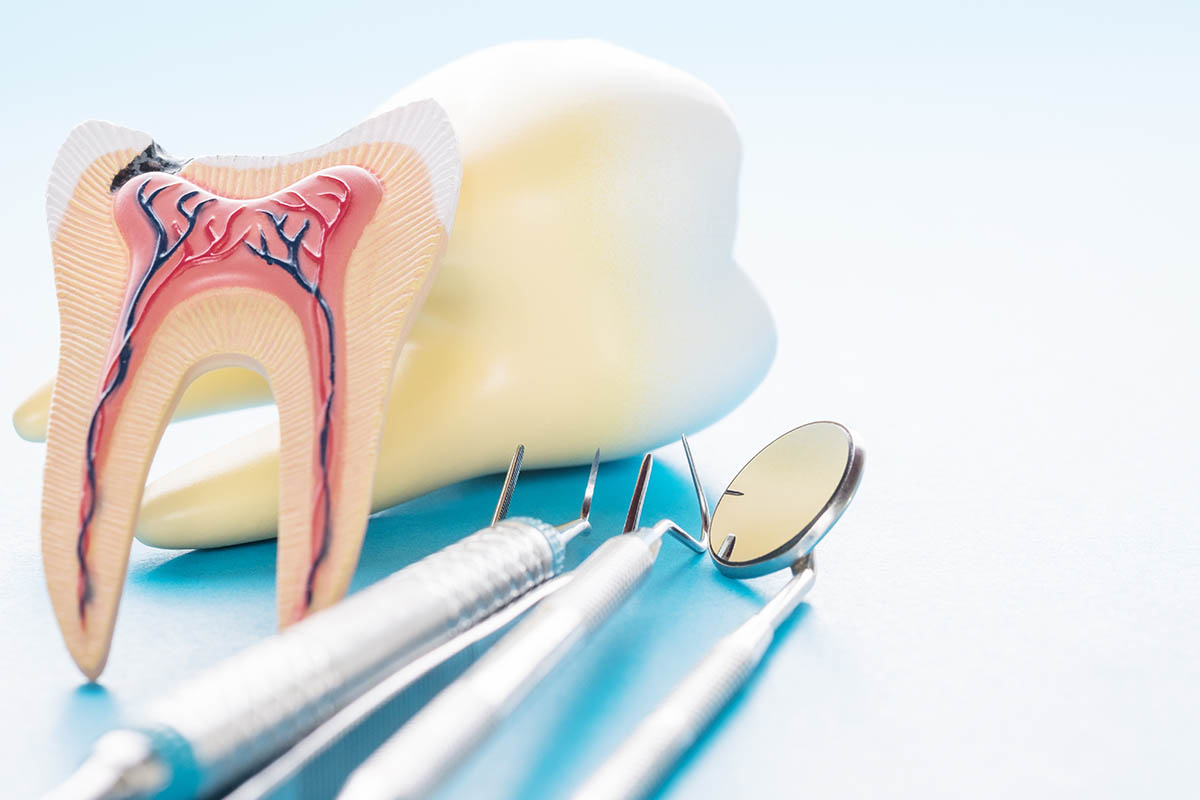Every endodontist is a dentist, but not every dentist is an endodontist.
So what exactly does an endodontist do?
Firstly, they spend two or more years in dental school completing advanced training to become a specialist in this field and be able to perform a wide range of highly complex endodontic procedures such as complicated root canal treatment, endodontic surgery, and traumatic-injury dental surgery and treatments.
In order to provide the best endodontic care, advanced technologies and specialised techniques are part of their ‘tool-kit’, so to speak. Both dentists and endodontists can diagnose, treat, and prevent the dental pulp found inside a tooth and the surrounding tissues, like your gums, from becoming diseased, healing any disease that has already occurred or replacing the diseased pulp with filling material – the root canal aspect.
It’s when your tooth has developed curved roots or blocked or calcified canals, or an exceptionally challenging root canal treatment is required, that your dentist will refer you to an endodontist.
Instead of root canal treatment, you could have the problem teeth removed and have removable partial dentures, fixed bridges, or implants put in instead. But…
Dentists would much rather save your own teeth if possible. Why? Because the best thing for your mouth, your health, and your continued enjoyment of the foods you love is your own teeth. Even a tooth with filler packing can withstand ten times more pressure than artificial teeth.
Everyone cringes when they hear the words ‘root canal’, but the trepidation is based on misinformation that was put out into the world many decades ago. With the right information, there is no need to be concerned about having root canal or endodontic treatment. If your cavities have gone so far as to infect the pulp inside your tooth, and it has become irreversibly inflamed or has even begun to die, root canal treatment is a necessity.

What does dental pulp consist of?
At the center of every healthy tooth is the pulp. It is made up of blood, connective tissue, lymphatic vessels and nerves. If that pulp has become diseased, an endodontist will remove the pulp and replace it, as we said earlier, with filling material. The tooth, although now considered dead, is nourished by connecting blood vessels in your jaw. These still-alive fibers in your jaw hold your tooth in place. Endodontic surgery preserves your tooth, protecting its appearance and natural function, as well as the integrity of your natural dental arch.
What is regenerative endodontics?
The good news is that through intensive research, regenerative endodontics is becoming a possibility. Regenerative endodontics are ‘biologically-based’ procedures designed to physically replace damaged teeth, including the dentin – the material found beneath the enamel of your teeth and above the central pulp – with the patient’s own tissue as opposed to the artificial but biocompatible filler packing used at the moment.
How to avoid endodontic dentistry?
If you’ve suffered severe trauma to your jaw, endodontic dentistry, which takes place under anesthetic, is essential. But generally speaking, the best way to avoid it is to take excellent care of your teeth on an on-going basis.
Contact us on 0508 TEAM DENTAL Make an appointment today and make sure your teeth have the best care available!
FAQs:
Q1: What is an endodontist?
A: An endodontist is a dental specialist who has completed at least two additional years of advanced training after dental school. They focus on diagnosing and treating diseases of the dental pulp and surrounding tissues, performing complex procedures like root canals and dental surgeries.
Q2: Why is saving my natural tooth important?
A: Dentists prioritize saving your natural teeth because they are best for your oral health, overall well-being, and ability to enjoy food. Even a tooth with a filling can withstand significantly more pressure than artificial teeth.
